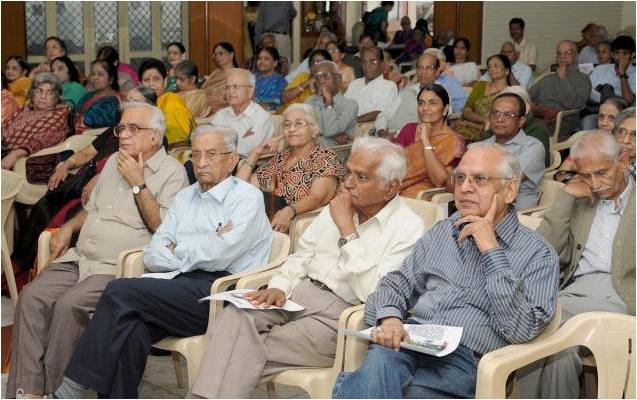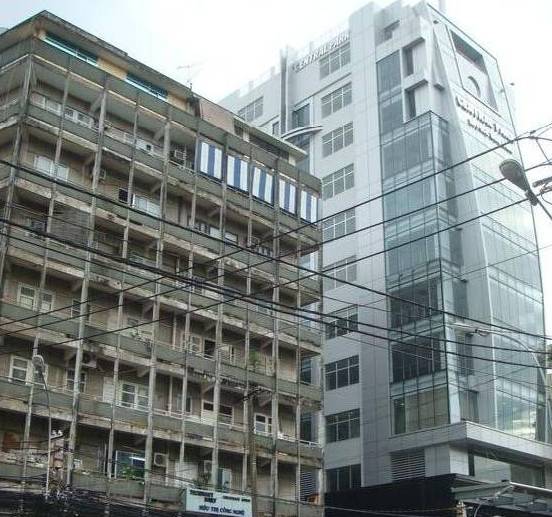 A committee member of a Co-operative Housing Society is a public servant as defined under section 2(c)(ix) of the Prevention of Corruption Act, 1988. If a person’s name is not appearing in Share Certificate as a Registered Member or as an Associate Member, he has no right to enter in Managing Committee.
A committee member of a Co-operative Housing Society is a public servant as defined under section 2(c)(ix) of the Prevention of Corruption Act, 1988. If a person’s name is not appearing in Share Certificate as a Registered Member or as an Associate Member, he has no right to enter in Managing Committee.
It is a must to adopt model bye-laws in your society, as per 97th constitutional amendment 2013. Download the Maharashtra State Co-operative Societies MCS Act, 1960 (Size: 616 KB). Download the application forms to adopt the new model bye-laws.
Maintenance charges
It is obligatory to take approval as per resolution of general body meeting in the regard of maintenance service and other charges, as per Model bye-laws section 139. Irrespective of the fact whether member is occupying residential or commercial premises, maintenance charges should be same, under rule no 71(A)(7) of Model bye laws. The only difference would be in charges like Property Tax, Water Charges & Insurance. Sunanda J. Rangnekar V/s. Rahul Apartment No. 11 CHS – Bombay High Court on 10 August 2005.
What is the procedure for recovery of non-payment of dues by a member?
A CHS is never formed for making profits instead it collects and disburses the contributions from its members towards common facilities and services enjoyed by its members. It is the duty of every member to pay dues properly & on time for ensuring the smooth functioning of the society. Disputes with the society cannot be mixed or made a reason for non payment.
The procedure for recovery of dues is as under:
- If a member fails to pay the dues after issue of the notice for a period exceeding three months is termed as a defaulter as per the Maharashtra Co-operative Societies Act 1960 and as per Bye-laws of the society.
- Issue a notice for payment of dues (including up to 21% interest) to the defaulter, with a warning therein that on failure to make payment of the same, an application would be made to the Assistant Registrar/ Deputy Registrar under section 101 of MCS Act, 1960 for recovery of the outstanding dues.
- Pass the resolution to recover the dues in the Managing Committee Meeting.
- Issue a final notice to the defaulter
- Apply to the Assistant. Registrar/ Deputy Registrar for the recovery of dues.
- Pay the prescribed fee (Rs 15 to 1000 max) through a challan payable at the Reserve Bank of India.
- The Assistant Registrar/ Deputy Registrar would issue a Recovery Certificate for the amount due, after making a hearing and a summary inquiry on the basis of the affidavits filed by the disputant and the respondent.
- On receipt of the Recovery Certificate, the Recovery Officer shall prepare demand notice for being sent to the Sale-Officer for attaching the movable property of the member concerned.
- The Sale Officer, on receipt of recovery paper from the Recovery Officer, shall visit the flat of the member concerned for preparing an inventory of the movable property and handover such list to the member concerned and serve the demand notice on the defaulter member.
- If the amount not paid by the member concerned immediately on service of the demand notice, the Sale Officer will seize the movable property.
- Thereafter, the Sale Officer will fix the date, time and place for such auction of the movable property seized and auction out the same and pay the sale proceeds thereof to the Society, in satisfaction of the outstanding dues payable by the defaulting member to the society.
As per the provisions of the bye-law:
- A defaulter cannot contest the election to be held for the post of Committee Members. However, a defaulter can propose or second candidate for the election.
- A persistent defaulter can also be expelled by the society. Even the High Court has held that a persistent defaulter can be expelled. If the member is expelled and the same is approved by the registrar and other higher authorities, the concerned member can be evicted from the premises to pay society dues.
- The concerned defaulter will have to defend his legal cases at his own cost. Further any expenses incurred by the society in filing the cases will be recovered from the concerned member and the same will be included in the Certificate of recovery given by the registrar. Upon granting such Recovery Certificate the Stamp Duty, Court enquiry fees and surcharges will have to be paid by the respective defaulter member. Further a portion of the Legal expenses incurred by the society will be included in the share of contribution given by the defaulter member. Besides, attending the Court cases and Registrar’s office is a time-consuming process.
- If the defaulter has some complaints or grievances against the society or Managing Committee, his said complaints will not be entertained by the Office of Registrar unless and until he pays the society dues.
- In the General body meeting the members can frame & approve certain rules with respect to parking and resolve to not to allow or allot parking to a defaulter.
- The concerned defaulter member cannot avail of any loan which he wants to take by mortgaging his premises on which dues are pending, as the financial institution will always ask for a No-dues Certificate.
- A defaulter member cannot sell his/ her flat unless and until he clears-off the dues. As the society would refuse the NOC & also to transfer the premises unless & until the dues are cleared.
- If he wishes to rent or sub-let his premises the society might not let him permission to do so unless and until he pays all the dues.
 Can the managing committee disconnect essential services of defaulters, for unpaid dues?
Can the managing committee disconnect essential services of defaulters, for unpaid dues?
Office-bearers and/ or manager cannot disconnect the essential supplies like water, electricity etc, irrespective of the dispute with the defaulter. If the aggrieved party files a criminal complaint then the person found guilty for disconnecting the essential service/s can be punished with imprisonment which can extend up to a period of three months and/or fine. Societies can get the recovery certificate without even appointing a lawyer.
Does the society have first claim on the shares of a member in case of insolvency?
If a member has become insolvent and/ or is unable to pay his debts to his financiers or business associates, as per Section 47 of the Maharashtra Co-operative Societies Act, 1960, it is clearly specified that the society has prior claim on the amount recoverable from a member subject to prior claim of Government in respect of land revenue, or any money recoverable as land revenue as per the provisions of Section 60 and 61 of Code of Civil Procedure Code 1908, before amounts are payable to the financiers/ business associates.
Can the society give rebate to members for prompt payment of dues?
There is no provision in the bye-laws for society to grant such rebate to members, but can charge interest on delayed payments.
Election of the managing committee
Committee member must be a flat owner and an active member, who has attended atleast one AGM meeting in the past 5 years AND elections must be held once every five years. The relevant election rules are listed under Annexure III (appendix-3) of the model bye-laws. If inadequate nominations are received, the general body can elect the members, during their meeting (Section 116 of model bye-laws).
A member will cease to be in the managing committee, if he does not attend last consecutive 3 monthly meetings. If a managing committee member has to be disqualified, then member has to write to the Deputy Registrar with a copy to the society – under Sections 118 and 120 of model bye-laws OR sections 78 or 144E or 35 under the MCS Act. The new government circular as regards to elections, the member strength in the managing committee is as follows:
| No of members | General | Reserved Women/ SC-ST/ OBC/ NT |
Total | Managing committee meeting Quorum |
| up to 100 | 6 | 2/ 1/ 1/ 1 | 11 | 6 |
| 101 to 200 | 8 | 2/ 1/ 1/ 1 | 13 | 7 |
| 201 to 300 | 10 | 2/ 1/ 1/ 1 | 15 | 8 |
| 301 to 500 | 12 | 2/ 1/ 1/ 1 | 17 | 9 |
| 500 and up | 14 | 2/ 1/ 1/ 1 | 19 | 10 |
To resolve disputes, managing committee may appoint a Grievance Settlement and Redressal Committee consisting of three senior and active members of the society, but who are not members of the managing committee.
Housing societies are classified as type ‘D’ societies. Click here to download the state government notification detailing how to conduct elections in a housing society.
 Should society check stamp duty payment, before transfer of flats?
Should society check stamp duty payment, before transfer of flats?
Earlier society was not bound to check and ascertain if the stamp duty is paid as per market value on the agreement of the incoming members. However as per the new model bye-laws 38(e)(iv), society can refuse the transfer, if stamp duty is not paid as per market value, as listed in the ready-reckoner. It is desirable that all incoming members should pay stamp duty as per true market value of their flats as this will help the society to expedite deemed conveyance or conveyance process with builders in future.
For resale of flats, either the buyer or the seller can pay the stamp duty. If nothing is mentioned in the agreement, then as per section 30 of the Bombay Stamp Act, 1958, the stamp duty will have to be paid by the purchaser. If the parties don’t agree with the value then the parties can go in appeal to the Chief Controlling Revenue Authority, Maharashtra State, Pune, under section 32B of Bombay Stamp Act, 1958.
For a deed of family settlement and also if the flat is gifted by the donor, as per the provisions of Bombay Stamp Act, as of 1 May 2002, stamp duty is payable at 2% of the market value or amount arrived as per article 25 relating to conveyance, whichever is lower.
Stamp duty is 0.5% of the housing loan amount, if amount is more than Rs 10 lakhs on mortgage deeds. For exchange of flats, stamp duty is also payable as per conveyance deed on market value of the property of greater value, as per article 25 and 32 of Bombay Stamps Act.
Prior to 4 July 1980, stamp duty was accepted on consideration recorded in the agreement. Between 4 July 1980 and 10 December 1985, stamp duty was to be paid on market value of the property, but payment could be delayed till time of conveyance of the society. After 10 December 1985, stamp duty is charged at the time of making the agreement.
Registration of agreement
If documents are registered, only then they are admissible in a court as evidence. Except in transfer of shares within a sociey, registration is compulsory and is done by Registrar or Sub-Registrar and serves as proof of payment of a proper stamp duty. However, society cannot refuse to transfer the shares if agreement is not registered.
Property taxes
To check flat-wise Property Tax charged by BMC:
- At http://www.mcgm.gov.in/, click on Property Tax (Left side of website, about 40th option from top)
- Enter your property account number as login for e.g. FN-04-abcd-00-x. Add ‘0’ to make it a 15-digit login ID.
- If KYC page opens, then click on cancel which takes you to the main page.
- Here you can download your property Tax detail in Annexure A/ Inspection Report, where you can check
your society details flat-wise. - There are other options like Property Ledger; No Dues Certificate; Property Transfer and Bills details like payment.
This is how the new property taxes (effective January 2013) are being calculated. Click here to download the concise version of the property tax rules OR visit the MCGM capital value property tax system site for more details.
Income taxes and Financial reporting requirements
- If society has earned interest from investments or any bank (including co-operative bank), it is taxable under section 80P(2)(d) of the Income tax Act. Only income from another co-operative society is exempt.
- As per amended Section 75 of MCS Act, Auditor cannot appointed for 3 consecutive years.
- It is mandatory that every CHS must file its Annual Report and Audited Accounts with the Registrars Office, maximum by 30 Sep (Section 147 of Model by-laws). Otherwise, you can file for an extension justifying the reasons for the same.
- The Audit Rectification Report must be submitted with the prescribed ‘O’ form within 3 months of date of audit report to the Auditor and Registering authority.
Record keeping requirements
Managing committee is required to keep on record permanently the following registers:
- Managing Committee minute book
- Register of General Body Meeting and special general body meeting.
- All types of cash books
- Bank Pass Book
- Member Register
- Bye-laws booklet
- Audit Report
- Papers regarding ownership of the society
- Sanctioned plan / lay-out of the society
- Various permissions letter regarding construction
- Occupation certificate of the building
- In addition to this all such papers which are necessary as per resolution of the society.
 What is the latest on M-20 bonds for committee members?
What is the latest on M-20 bonds for committee members?
The provision of Mandatory signing of M–20 Bond by Members of Managing Committee has been abolished by the state government w.e.f. 06.09.2012 (G.R. CSL number – 2012/PK402/15-S). It is construed that the pending cases, prior to 06.09.2012, will still be covered U/s. 73(1AB) of MCS Act, 1960.
In case there are aggrieved members, hereafter should exploit the use of Consumer Forums/ Courts and Bye-Law no 136 of the old Bye-Laws and Bye-Law no 138 of the new Model Bye-Laws, which read as under:-
“The members of the Committee shall be jointly and severally liable for making good any loss which the society may suffer on account of their negligence or omission to perform any of the duties and functions cast on them under the Act, Rules and Bye-laws of the Society.”
Annual General Meeting
AGM must be held before 14 August (giving a clear 14 days notice). The quorum for AGM is 2/3 of the total members or 20 members, whichever is less. The meeting can be adjourned for a later hour on the same date, if there is lack of quorum. And even then the quorum was not completed then the members present can conduct the general body meeting without quorum. However, it is necessary to give instructions of such with agenda.
Extension can be obtained up to 14 November by making an application to the Registrar. If Annual General Body Meeting was not called up to 14th November even after taking extension, then the Registrar can take action of calling Annual General Body Meeting by appointing authorized officer.
Special General Body Meeting
It is binding to call a Special body Meeting for the subjects mentioned, within one month from the date of demand if made by 1/5th members of the total members of society, and if concerned Registrar instructed-or demand made by the Housing Federation. If the society did not call meeting in prescribed time limit even after 1/5th members of the society demanded, the Registrar may call special general body meeting by appointing authorized officer (Administrator).
Code of conduct for the Administrator of the Co-Operative Housing Societies
- It is expected that the administrator should have to work to try to remove that defects/errors incidental to the reason mentioned in the orders of appointing administrator, for e.g. incomplete record, incomplete accounts, not taking elections etc.
- It is expected that the administrator should work as a co-coordinator between the Registrar’s office and the society in such a way that dispute in the society will not be increased and settled the same cordially.
- Since the appointment of the administrator is a temporary arrangement, it is necessary for him to prepare a voter list and to fix next election programme immediately as soon as he takes the charge of the office.
- The Administrator should avoid appointing person/manager by paying them such a salary/remuneration which society could not bear.
- It is necessary that the administrator while submitting a report of the working during his tenure to the Registrar should have to submit the same with expenditure he incurred before the general body meeting.
Writing off loans or bad debts
Subject to the model Bye-law no. 150, the Society may write off any loan and interest thereon, Society’s charges due from the members, the expenses incurred on recovery thereof and the accumulated losses, which are certified as irrecoverable by the Statutory Auditor. The amounts mentioned in model Bye-laws No. 149 shall not be written of unless:
- The meetings of the General Body of the society has given due sanction for writing off the amounts.
- If the Society is indebted to a financing agency, then its approval has to be obtained.
- The approval of the registering Authority is obtained under certain conditions.
Sinking fund
Sinking fund required for repairs and maintenance of the society can be raised from the amount collected by all members at the rate which decided by them with the consent of all members in the general body meeting of the society. This rate is fixed at 0.25% every year of the rate of construction cost of each flat, payable in monthly installments. Area of land has to be excluded in calculating the contribution rate.
Withdrawal from sinking fund requires prior approval of the Registering authority, as per bye law 14(c), based on architect/ structural engineer’s report. Contractor agreement must also be provided and necessary resolutions must be passed in the AGM. Managing committee must try to regroup the fund in 5-7 years.
As per BMC by-law 77 for housing societies, a building between 15 and 30 years old is mandated to to conduct structural audit every five years and all other buildings every three years.
GST registration for societies
Societies which collect more than Rs 20 lakhs in maintenance charges annually from its members, or Rs 7,500 in monthly maintenance charges, have to pay GST on their income.
Old system:
Post Budget 2012, the eligibility of a Society for Service Tax collection and remittance can be calculated as below:
1: Total all collections of last year, subtract collections that went towards payments to local authorities (e.g., payments to Municipality) = Rs. A
2: Find the number of Members in your Society (If one Owner has 3 flats, he is one Member). In most societies total number of Members will be less than the total number of Flats as one Owner may have multiple flats. Let’s say total number of Members = M
3: Each member’s monthly exemption is Rs 5,000. Find out what is the total exemption (Rs. E) of your Society:
Rs. 5000 * M * 12 = Rs. E
4: Rs. A – Rs. E = Taxable Income of your Society
If this Taxable Income is more than 10 lakhs, your Society needs to get registered under Service Tax.
Please don’t use this write-up as a replacement for legal opinion. However this article has been compiled from various experts like Adv Ameet Mehta, Mukund Parikh, Adv Vinod Sharma, Adv. RP Rathod, Rajendra Popat, Adv Hemant Agarwal, Housing Times, MSWA’s Housing Societies Review and also personal experiences of the author of this website.
